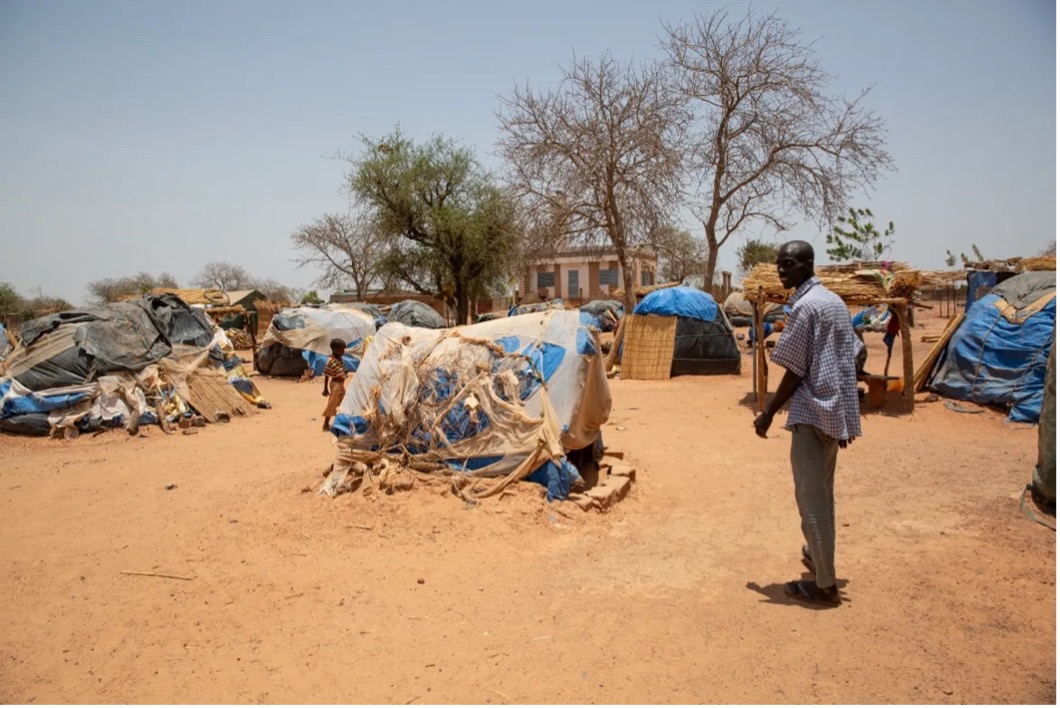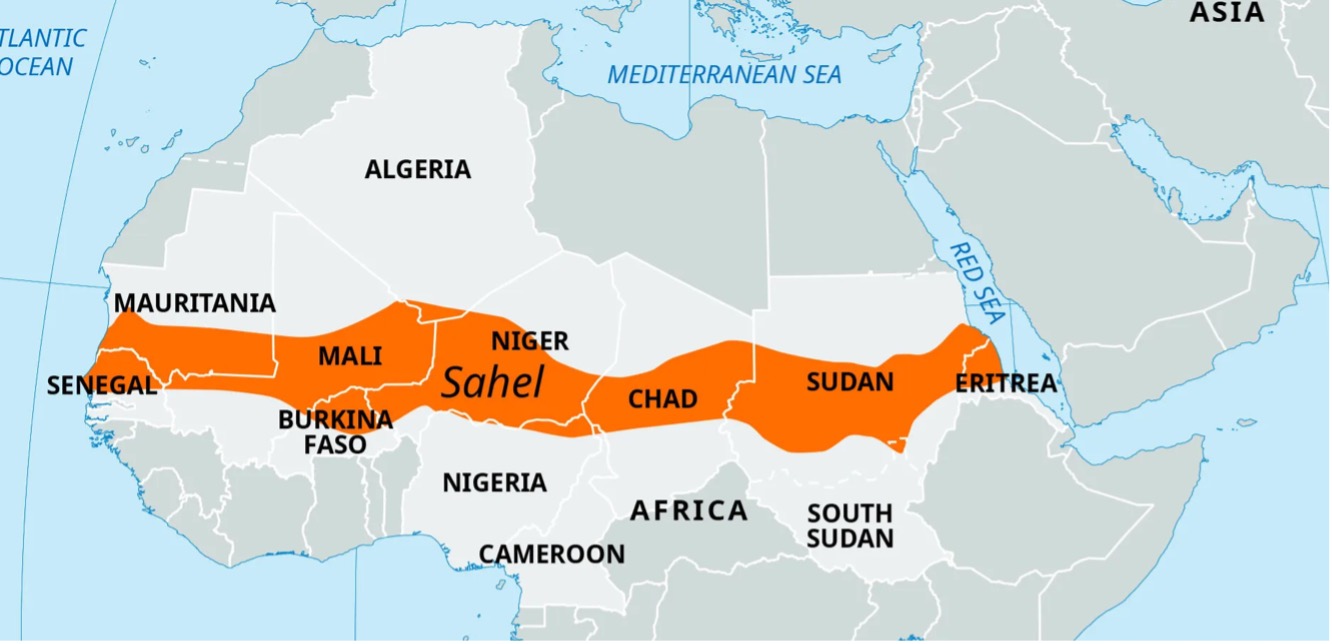
By Marisa Were/GICJ
In the last few years, the normalisation of neglect has exacerbated needs and deepened despair in global crises. On 3 June 2023, the Norwegian Refugee Council’s (NRC) annual World’s Most Neglected Displacements Report (2023) was published. For the second year in a row, Burkina Faso is at the top of the list due to facing a 61% increase in internal displacement numbers, from 438,000 in 2022 to 707,000 in 2023, as well as refugee and asylum seekers numbers increasing from 60,000 to 150,000 between December 2022 and 2023, according to UNHCR.
The NRC annual report on the World’s Most Neglected Displacements is based on three criteria: lack of humanitarian funding, lack of media attention, and lack of international political and diplomatic initiatives compared to the number of people in need. All these three criteria are linked together; without media attention, the international community cannot be made aware of the situations occurring, which reduces or limits adequate funding to aid in alleviating the crisis.
How Burkina Faso Got to the Top of the List
- Lack of Humanitarian Funding: According to OCHA, in 2023, Burkina Faso’s humanitarian response plan requested USD 876 million, of which only USD 347 million was provided, meaning the response plan was 39.6% funded.
- Lack of Media Attention: The decrease in media coverage results from several international news outlets and journalists being banned from working in Burkina Faso by the government in 2023.
- Lack of International Political and Diplomatic Initiatives: Due to decreased media coverage, international political and diplomatic initiatives have not been able to be responsive enough to the crisis.
The Current Situation
As it stands, Burkina Faso continues to experience the worst humanitarian crisis in its history, with an estimated 10% of the population internally displaced because of violence and insecurity. In the first three quarters of 2023 compared to 2022, severe protection and security concerns that affect civilians increased by 60%.
Public services, including education and health sectors, are overwhelmed:
As the government prioritises defence in its public spending, the country cannot handle the growing poverty and humanitarian needs. At least 6,000 schools, an estimated one in four, have been closed, affecting the education and protection of around one million students who can no longer attend school. Four hundred health facilities have been shut down within the health sector, leaving 3.6 million people without access to healthcare, a 70% increase from 2022. For example, in Djibo, the capacity of the local health system has been reduced by 83%. In addition, there is an outbreak of dengue (a viral infection that spreads from mosquitoes to people), straining the healthcare system, which is already on the verge of collapse. However, due to the conflict and disruptions in aid deliveries, more healthcare facilities are at risk of closure, significantly impacting healthcare services to 3.5 million individuals.
Access to humanitarian aid is severely restricted:
Hundreds of thousands of people have been cut off from humanitarian aid as up to two million civilians are trapped in around 36 blockaded towns across the country. These blockades have disrupted access to critical services and halted trade and farming, destroying livelihoods. The armed groups themselves have imposed movement bans, leading to humanitarian assistance being limited to reaching areas. This lack of road access has caused humanitarian organisations to rely on limited air transport, which increases operational costs and, therefore, limits the reach of assistance.
Food Insecurity and Poverty:
Poor harvests have occurred throughout the country, worsening food insecurity and poverty. Roughly 42,000 people are suffering from high levels of food insecurity, and in some regions, the lack of new supplies over several months has increased the levels of food insecurity. The weak rainfall throughout 2023 also has limited crop yields and the amount of pasture available for livestock, further reducing food suppliers in 2024. Over 40% of people in Burkina Faso live below the poverty line. Conflict escalation, rising insecurity, and increasing climate vulnerability significantly affect Burkina Faso’s limited economic prospects.
It is estimated by the humanitarian community that the situation in 2024 will see 6.3 million people in need of humanitarian assistance across the country’s 13 regions. Among those affected, there are an estimated 1.2 million people in 40 population centres across seven areas that will be cut off from the rest of the country, who are dependent on irregular resupply by commercial convoys moving under military escort and humanitarian cargo flights that are more regular but have limited capacity.
How Did This Happen
On 30 September 2022, Burkina Faso had its second coup of the year when Captain Ibrahim Traoré, head of an artillery unit of the Armed Forces of Burkina Faso, declared himself Head of State. Captain Traoré overthrew the previous junta leader, Lieutenant Colonel Paul-Henri Sandaogo Damiba, who had staged the first coup of the year in January 2022, under the justification of addressing the country’s security crisis, which is the same justification that Traoré used to seize power.

Following the coup, Traoré swiftly took control by dismissing Damiba’s transitional government and legislature, suspending the constitution, and consolidating power in the hands of the junta. To maintain the government's day-to-day operations, he called on senior ministry bureaucrats. He also met with the top militants for a public photo shoot in a show of strength, demonstrating their support for the new junta under his leadership. It seems that since seizing power, Traoré’s actions have only intensified the country's insecurity and humanitarian crises by diverting resources, attention, and personnel from the frontlines of this crisis. Burkina Faso’s current central government controls roughly half of the nation’s territory; the other half is controlled by armed groups that are increasingly blockading cities and towns, including major population centres outside the capital, Ouagadougou.
Since the coup of January 2022, the first 18 months saw a triple number increase in the number of killings, leaving civilians to become increasingly engaged in the escalating violence that involves non-state armed groups, the government, and self-defence militias known as the VDPs that are aligned with the government. The VDPs, in April 2023, allegedly killed at least 150 civilians in the Yatenga province, which is considered one of the deadliest incidents.
Geneva International Centre for Justice (GICJ) calls on the International Community not to allow neglect to become normalised as millions in Burkina Faso continue to endure the grim reality of severe violence and displacement daily. We commend the NRC report for shedding light on the more than 2 million people in Burkina Faso who currently lack access to healthcare, humanitarian aid, and education, and face violence and internal displacement daily. GICJ hopes that the international community will remember Burkina Faso and the other nine countries mentioned in the report that are in dire need of humanitarian assistance and advocacy.
The Full List of the Ten Most Neglected Displacement Crises in the World by NRC:
- Burkina Faso
- Cameroon
- Democratic Republic of Congo
- Mali
- Niger
- Honduras
- South Sudan
- Central African Republic
- Chad
- Sudan
#Geneva4Justice #GenevaInternationalCentreforJustice #GlobalCrisis #HumanitarianAid #NRCReport #BurkinaFaso #HumanRights #InternationalCommunity #Refugees #DisplacementCrisis #CrisisResponse #GlobalSolidarity







